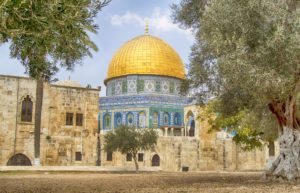Preserving Our Iman
The first thing is, and this should always be done with our obligations, is that we should not compromise our obligations. For a Muslim, the biggest obligation and worship is salah. This is one thing that we cannot afford to compromise. There is no good deed that can take the place of fardh salah. This is one thing that we have to really, sincerely and honestly uphold, whether someone is there to remind us or not. This is our duty and our responsibility. The other thing is abstaining from all of those things that Allah (SWT) has forbidden. We often get into this cycle where we say, “Well, is it haram? If it is not haram, we should do it.” Deen is not just about halal and haram. Islam does not just consist of these two things. Yes, there are many things that are haram, but there are many more things that lead to haram. This is why Umar (RA) says, “We left 90% of things that were not haram when looked at by themselves. Because they led to things that were haram, we left them.” This question, “Is it haram?”, and the fact that we only stay away from that which is haram is not the talk of a believer or someone with strong Iman. Someone with strong Iman is not just abstaining from haram, but they are also abstaining from that which leads to haram.
The Channels to our Heart
One of the most important channels is our eyes – our gaze. There are things that we are forbidden from looking at, but if we do, it is like we have contaminated our heart. Whatever the eyes see, it reflects directly upon the heart. If what we are looking at is from the likes of haram, right away, we are corrupting the heart and blackening it. This is one of the channels through which a person’s thoughts change. What we look at affects what we are thinking about as well. Controlling our gaze and deciding to control our gaze for the rest of the year is something that we have to decide now.
The other channel is that which we listen to. Whatever we listen to is programming us, whether we are listening to it deliberately or we just happen to be listening to it. Whatever we listen to also reflects upon our hearts and minds. This is where our thoughts and ideas take shape. It is taking this stimulus and input into our system and that input is shaping what is happening in our hearts and minds. Whatever happens in the mind and heart takes shape into actions. It does not stay hidden inside. While it is there, no one can see it, but eventually, it will come out in the form of action and deeds. It cannot be that a person is thinking pure thoughts all the time and they end up doing wrong things. Eventually, those pure thoughts will come out in the form of pure deeds. Similarly, it cannot be that a person thinks only impure thoughts all the time and the result is that they are always doing pure deeds. It is only a matter of time before those thoughts will come alive in the form of their actions. What we look at and listen to – if it is not in line with what Allah (SWT) wants us to do in life, it needs to be kept away.
The third thing is what we talk about. Whatever we speak about has a direct impact on our hearts. You will notice this in any conversation where you exchange harsh words with someone. If you fight with someone and you are yelling at each other, you will walk away with a burdened feeling. You will not walk away feeling good. If you have a nice conversation, you will walk away feeling very good. If you listen to something that touched your heart, it will affect you heart, just like if you say something that touches someone else’s heart, it will touch your own heart. There are different levels of speech; speech which is absolutely haram which we must stay away from in all circumstances, which includes lying, swearing and cursing, backbiting, making fun of other people and saying hurtful things to other people. All of these things are impermissible in Islam. A person who says things like this corrupts their own heart. The same thing happens to someone who talks about indecent things. Someone who talks like this programs their mind and heart to act in that direction.
The last thing, which is included in all of this, is what we think about. If a person is deliberately thinking of inappropriate things, this also soils their hearts.
[Above section from a talk delivered by Mufti Aasim Rashid]
